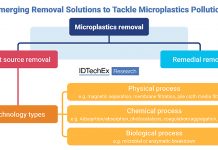The network aims to accelerate adoption of sustainable chemicals and materials through improved regulation and standards.
BB-REG-NET, the UK’s first regulatory science network for bio-based and biodegradable materials, has launched with the help of a £474,135 award from Innovate UK.
The network will bring together stakeholders from across industry, academia, and government to accelerate the adoption of sustainable chemicals and materials in the UK market.
The 12-month implementation phase follows a successful six-month discovery period that engaged with over 180 individuals and 100 organisations to identify key barriers preventing wider adoption of sustainable chemicals and materials in the UK market.
Almost all current chemicals are manufactured from fossil oil and gas, making them responsible for ~10% of global greenhouse gas emissions.
BB-REG-NET brings together leading experts from academia, industry and government to develop new tools, standards and approaches for evaluating bio-based chemicals and materials. The network aims to facilitate evidence-based policy making and create a more supportive regulatory environment for sustainable alternatives to fossil-based materials.
Dr Jen Vanderhoven, Chief Operating Officer at BBIA and Project Lead for BB-REG-NET, said: “The development of a regulatory science network for bio-based and biodegradable materials is crucial to overcoming existing barriers to their widespread adoption.
“Current challenges include inconsistent policy and regulatory frameworks, standardisation challenges, and consumer confusion. These issues hinder innovation and market acceptance, placing bio-based chemicals and materials at a disadvantage compared to fossil-based incumbents.
“BB-REG-NET will establish a network of key stakeholders, with the aim of developing new tools, standards and approaches to evaluate the quality, performance and environmental and economic impact of Bio-based, biodegradable and compostable chemicals and materials, to assess benefit-risk and facilitate sound and transparent regulatory decision-making. We hope this will enable a truly circular bioeconomy and reducing reliance on fossil resources.”
Rachael Rothman, Professor of Sustainable Chemical Engineering & Academic Lead for Sustainability at the University of Sheffield, added: “BB-REG-NET will bring together industry, academia, policy makers and regulators with a shared goal of developing, assessing and bringing to market the bio-based supply chains needed for a sustainable future.
“Through collaboration across sectors, we will develop guidelines to help harmonise the assessment of bio-based and biodegradable materials, and in particular to ensure fair, forward-looking comparisons with fossil counterparts.”
Professor Paul Freemont is co-director of the UK Innovation and Knowledge Centre SynbiCITE at Imperial College. He said: “This programme is a hugely important development for the UK Bio-based materials industry as it allows direct engagement between companies, academics, policy makers and government to ensure that the UK is at the forefront of developing responsive regulatory frameworks for new bio-products and materials.”
The initiative comes at a crucial time as the UK chemicals industry aims to source 30% of its carbon feedstock from biomass by 2050, potentially contributing £204 billion in annual revenue to the UK economy. The manufacture of just 15 biochemicals could deliver 5.2 million tonnes of CO2 equivalent greenhouse gas savings and £1.6 billion annually to the UK economy.
BB-REG-NET will operate through six specialised working groups focusing on:
- Circular bioeconomy
- Environmental impact assessment
- Economic impact analysis
- Market acceptance and consumer understanding
The network will be supported by an advisory board comprising leading experts from industry, academia and regulatory bodies. Working groups began last December, with the first major deliverables expected in early 2025.
More information at bb-reg-net.org.uk.










